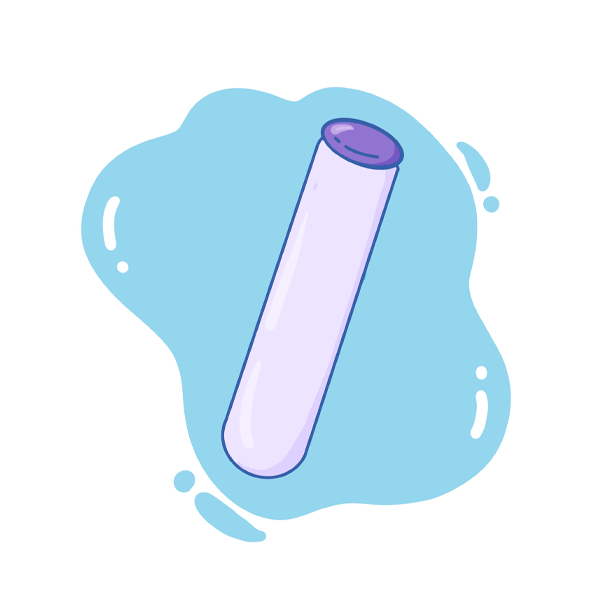5 Popular Contraceptives among Adolescents
In 7th grade, we learned about contraceptives – methods to help avoid pregnancy. They should be used by anyone who is not ready to have a baby yet and in sexual activities. Here are 5 common contraceptives: Contraceptive Pills, Male condoms, IUDs, Depo Provera/injectables, and Implant (in your ). Know pros and cons, explore and choose.
Let’s help you choose the one that’s suitable for you!
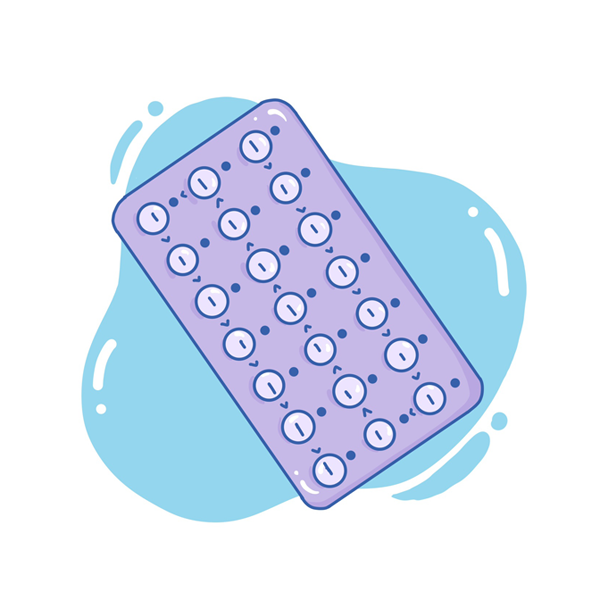
1) Contraceptive Pills (CP)
- What is it?
A hormonal pill that must be taken every day without fail by females.
- When will I be able to get pregnant (conceive) again?
You can get pregnant as soon as you stop taking the pill.
- Are there any associated side effects?
Some may face menstrual irregularities, headache, nausea, weight loss.
- What are its advantages?
- It can make your periods regular and less painful.
- It reduces the risk of getting fibroids, ovarian cysts and reduces anemia.
- What are its disadvantages?
- Forgetting to take the pill will reduce its effectiveness.
- It doesn’t protect you from STIs.
Effectivity :
- Consistent and correct use: 99%
- Common use: 93%

2)Male Condom
- What is it?
A thin rubber (latex) covering that’s worn over the penis during the intercourse.
- When will I be able to get pregnant (conceive) again?
A condom prevents pregnancy only if it worn properly during sex. When you’re ready to conceive, you can stop using them. Do remember you can also get pregnant if the condom has been worn incorrectly, so be sure to carefully follow the instructions provided on the pack.
- Are there any associated side effects?
Condoms generally have no serious side effects, but some people may be allergic to latex or the materials in certain condoms, which can cause irritation.
- What are its advantages?
- It protects you from STIs as well.
- It is the most foolproof method and is used for dual protection even if you’re on another contraceptive.
- It’s available in different sizes, flavor and textures, including the latex free option.
- What are its disadvantages?
- The new condom has to be used properly every single time during sex for its proper effectiveness.
- Limits skin to skin contact. .
Effectivity :
Consistent and correct use: 99%
Common use: 96%
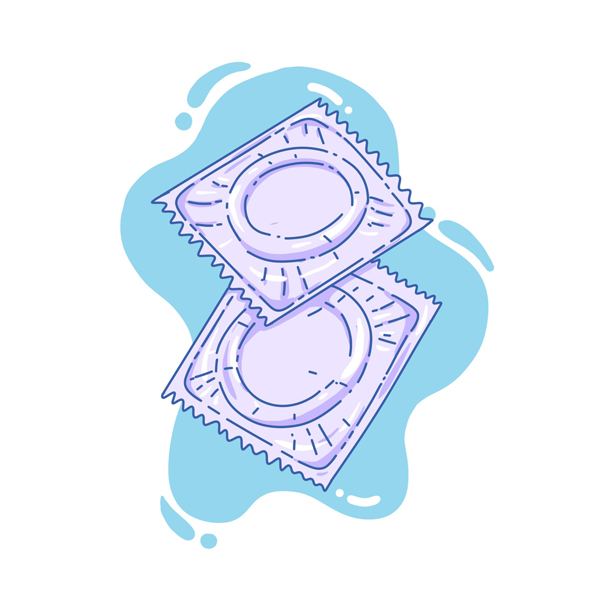
3)Intrauterine Device (IUD) / Intrauterine Contraceptive Device (IUCD)
- What is it?
IUCD is a T-shaped contraceptive device placed inside a woman’s womb (uterus) by the trained health worker. It remains effective for 12 years.. It is made up of copper hence also known as Copper T.
- When will I be able to get pregnant (conceive) again?
One can get pregnant as soon as the device is removed from the uterus.
- Are there any associated side effects ?
The most common adverse effect of an IUD is irregular or painful periods as found with some users. These adverse effects typically go away after the first two or three months of use.
- What are its advantages?
- Once it’s inserted, you don’t need to do anything until it needs replacing.
- You can remove it whenever you want.
- The procedure for its insertion or removal is very simple and short.
- It is non hormonal.
- What are its disadvantages?
- It doesn’t protect from STIs.
- A medical practitioner is required to insert or remove it.
- In some rare cases, it may get rejected and pushed out by the body.
Effectivity : 99%
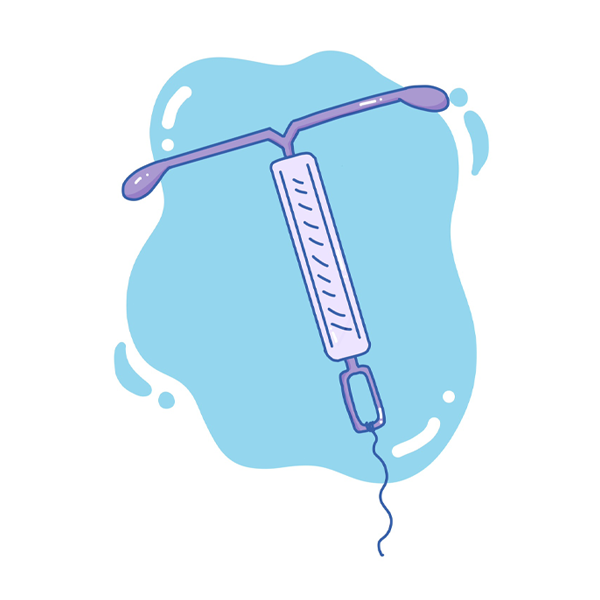
4)Injectable Contraceptives (Sangini/ Depo)
- What is it?
A single injection of Depo prevents pregnancies for three months.
- When will I be able to get pregnant (conceive) again?
With its use, fertility returns a little later as compared to other methods, but it does not affect fertility. On average, the revival time is 4 months.
- Are there any associated side effects?
Most users experience irregular periods or no periods at all. Some may experience absence of vaginal bleeding or spotting, dizziness, weight gain or loss, breast tenderness..
- What are its advantages?
-
- Once injected, its effect will last for three months.
- It is discrete, no one can see you’re using it.
- What are its disadvantages?
-
- It doesn’t protect you from STIs.
- Even if you decide not to use it anymore, you’ll have to wait three months for its effect to end.
- It is hormonal and some may have side effects of hormones.
Effectivity:
Consistent and correct use: 99%
Common use: 96%
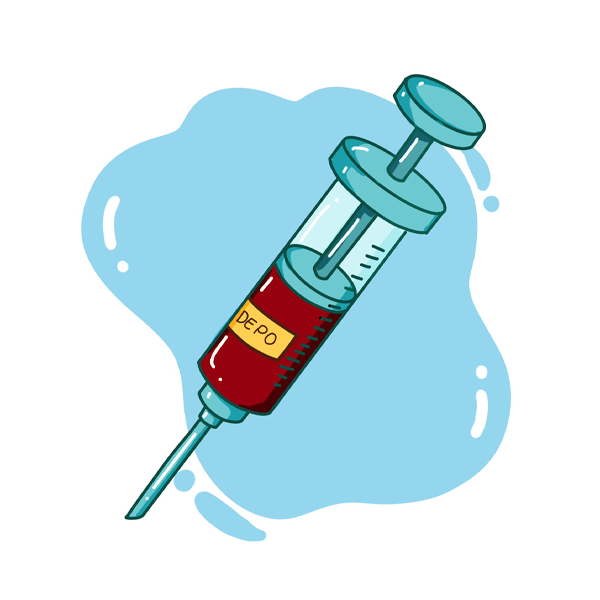
5)Implant (Jadelle)
- What is it?
The contraceptive implant is a combination of two small c rods. It is inserted into the upper arm, preventing pregnancy for five years.
- When will I be able to get pregnant (conceive) again?
You can get pregnant immediately after you take the implants out.
- Are there any associated side effects ?
Most women see a change in their bleeding pattern in the first three months of use. Some may suffer from acne, headaches, weight gain or loss or breast tenderness.
- What are its advantages?
-
- Once inserted, you don’t need to do anything until it needs replacing.
- You can remove it whenever you want.
- It is inserted like an injection and it stays in the same place.
- What are its disadvantages?
-
- It doesn’t protect from STIs.
- A trained and certified medical practitioner is required to insert or remove it.
Effectivity : 99%
References:
- Compare Contraceptive Methods: Find My Method
- Family Planning Methods Where There Is No Doctor
- Family Planning Methods in Nepali
- Cervical Cancer: Kendrabindu
- Implant Birth Control: Marie Stopes Nepal
